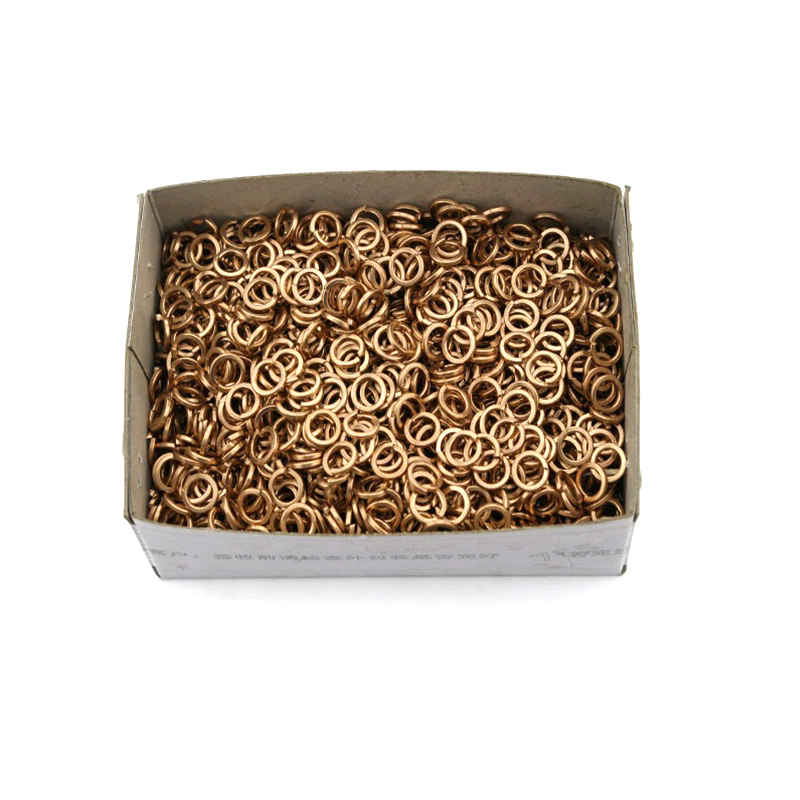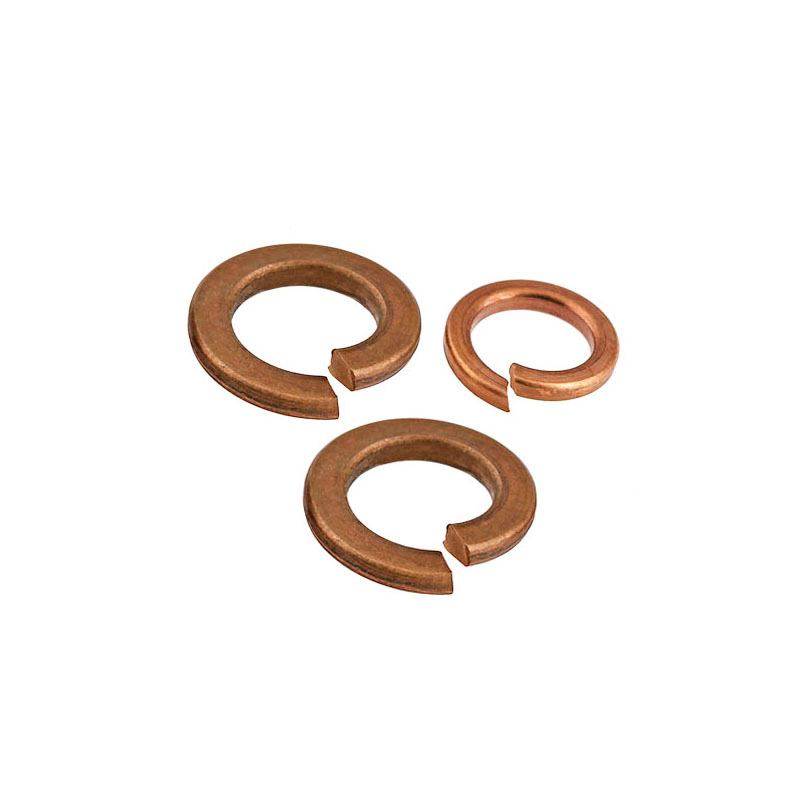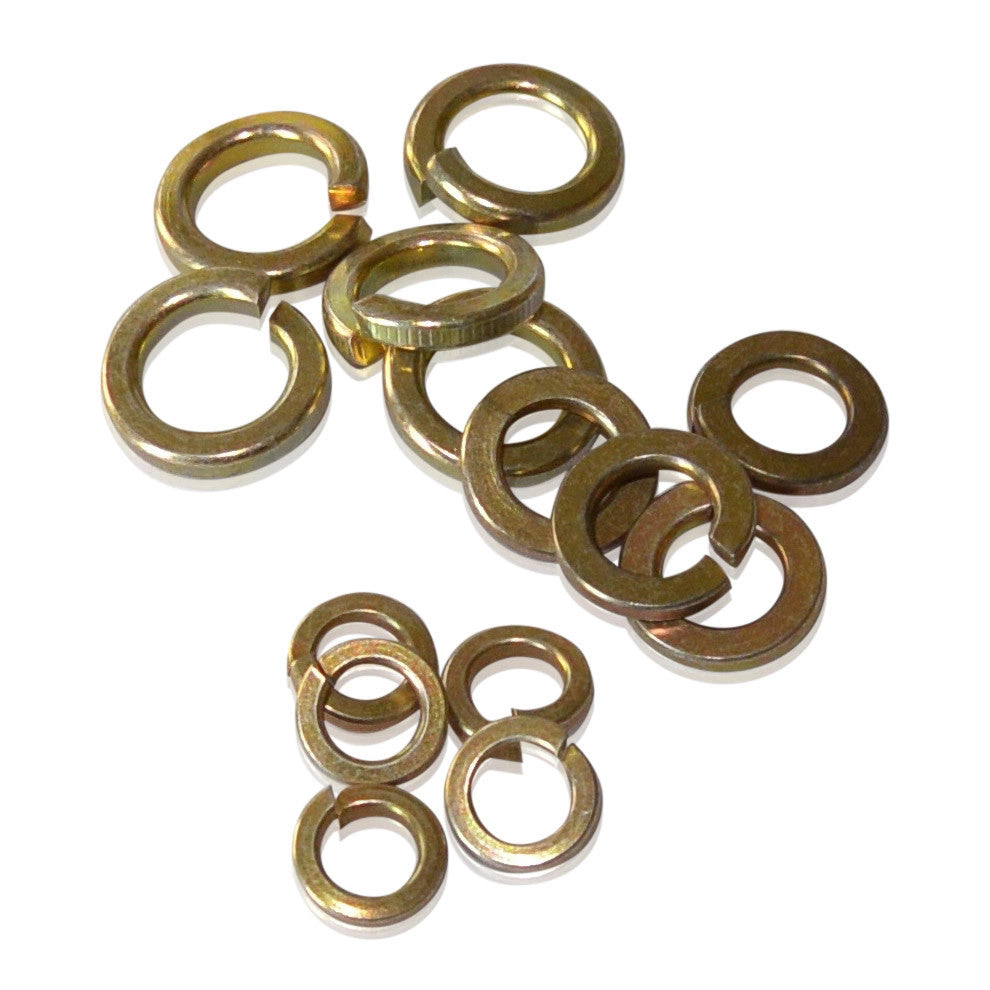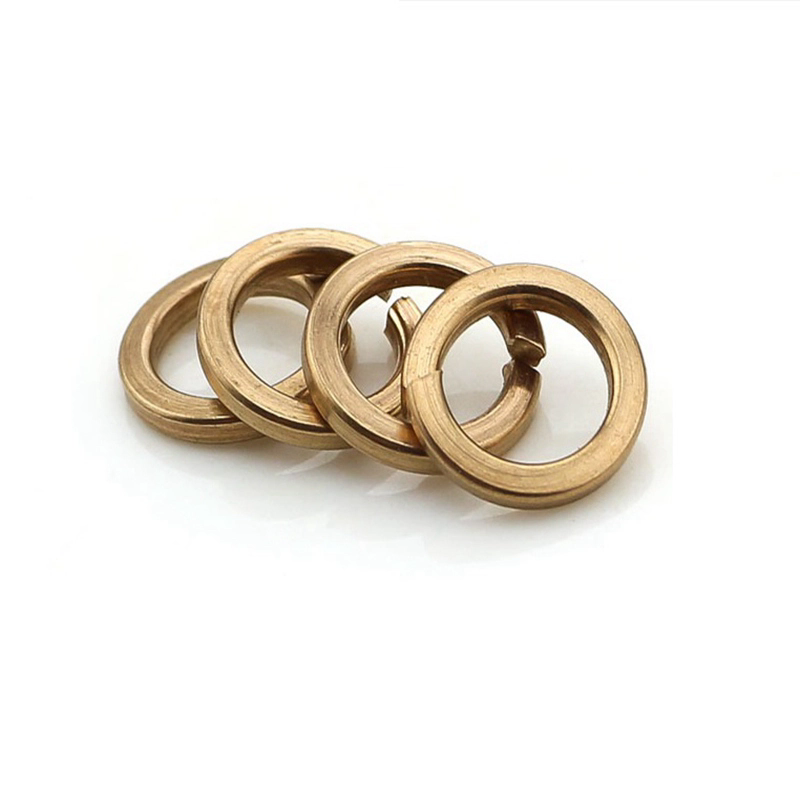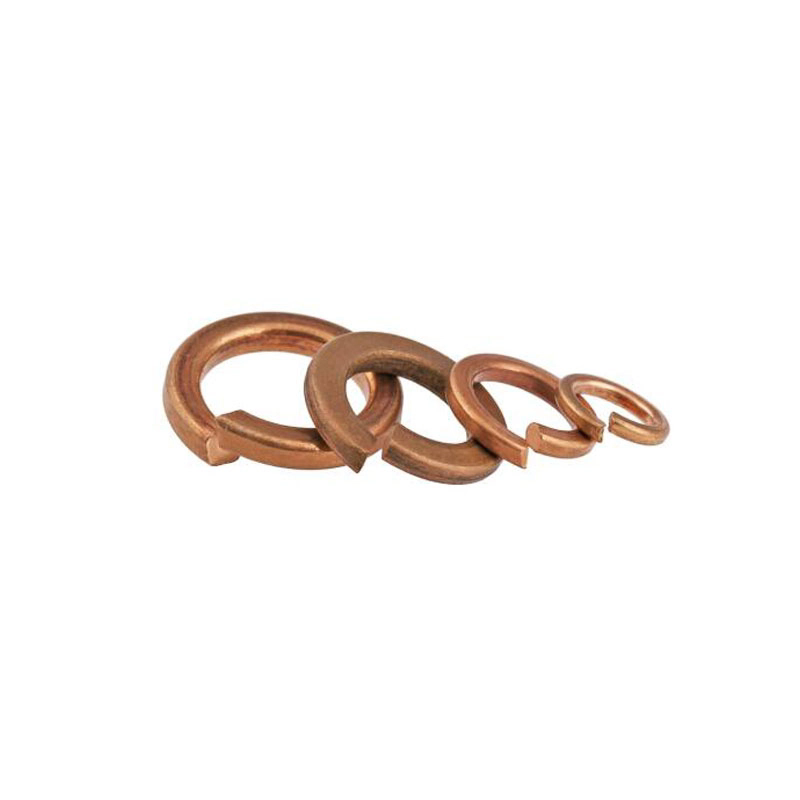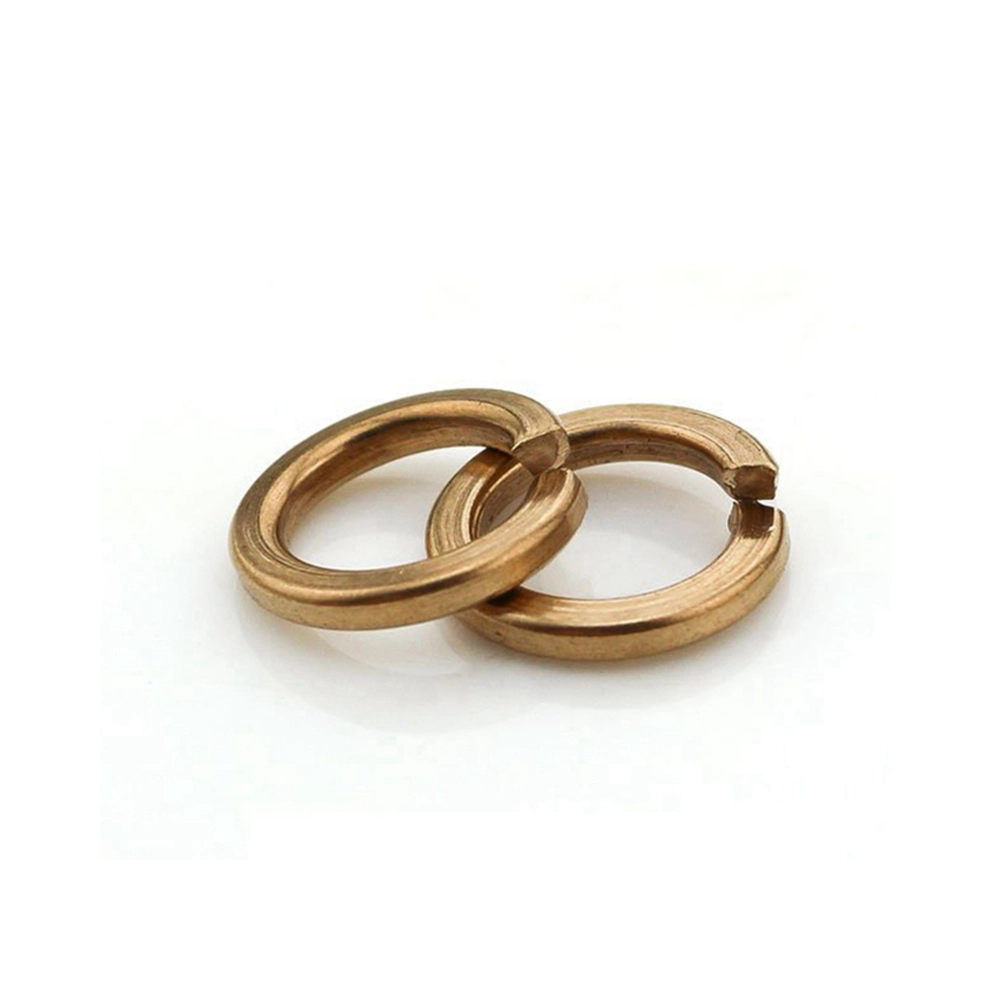DIN stands for "Deutsches Institut für Normung" which is the German institute for standardization.
Description:
Designed with a split ring or coiled spring shape.
Made from hardened steel or spring steel.
The split/coiled design allows the washer to exert a constant spring tension.
This spring tension helps create friction and resist loosening of the nut or bolt.
Function:
Prevents nuts and bolts from vibrating loose over time.
Applies a clamping force between the nut/bolt head and the surface.
Creates resistance to rotation and helps maintain the tightness of the connection.
Commonly used in applications with high vibration or dynamic loads.
Characteristics:
Available in a wide range of standard sizes to match bolt/nut diameters.
Can be used with both metric and imperial threaded fasteners.
Made in different materials like steel, stainless steel, nylon, and more.
Provide a locking action without the need for adhesives or other components.
Reusable - can be removed and reinstalled multiple times.
Larger diameter than standard washers - Typically range from 1-4 inches in outer diameter.
Thin profile - Usually have a thickness of 1/16 to 1/8 inch.
Large inner diameter - The inner hole is often 1/4 to 1 inch in diameter.
Provide a larger bearing surface area.
Commonly made from steel, stainless steel, or galvanized steel.
Used to spread the load and prevent damage to soft or brittle materials.
Help distribute the force from a nut or bolt head over a larger area.
Frequently used when mounting hardware to drywall, wood, or other surfaces that could be damaged by a smaller washer.
Also used for vibration dampening, surface protection, and decorative purposes.
Fender washers get their name from their original use on the fenders of cars and trucks to prevent fasteners from pulling through the sheet metal. However, they are now commonly found in many construction, plumbing, electrical, and general mechanical applications.
DIN125 specifies the dimensions and tolerances for plain washers, including the outer diameter, inner diameter, and thickness.
The standard covers a wide range of washer sizes, from very small washers with outer diameters around 3 mm up to larger washers around 200 mm.
DIN125 washers are made from various materials including steel, stainless steel, aluminum, and plastic depending on the application needs.
These standardized washers are widely used in mechanical assemblies, construction, and other industrial applications to distribute the load under a nut or bolt head.
Adhering to the DIN125 specifications ensures compatibility and interchangeability of these common hardware components across different manufacturers and products.

